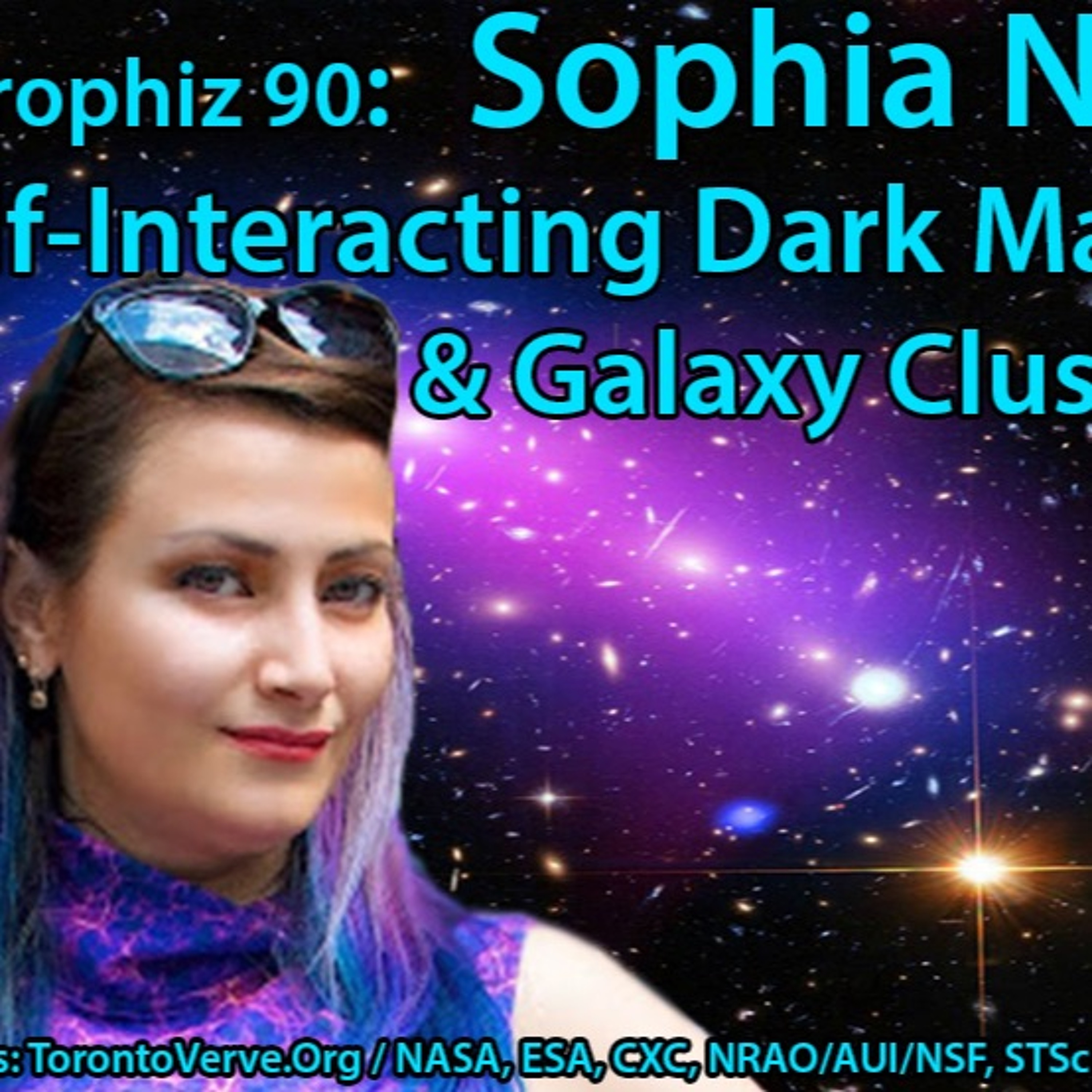Astrophiz 90: Sophia Nasr - Self-Interacting Dark Matter

b'Astrophiz 90: Sophia Nasr \\u2013 Self Interacting Dark Matter and Galaxy Clusters\\n\\nThis episode\\u2019s featured guest is Sophia Nasr, who is a fabulous graduate physics student at University of California, Irvine who is working on her PhD in cosmology and astroparticle theory with a focus on researching Self-Interacting Dark Matter. She brilliantly explains all forms of dark matter research and her passion for cosmology, equity, diversity and outreach.\\n\\nIn the sky: \\n\\nObservation notes for September include Saturn, Jupiter, the Moon and Uranus.\\n\\nFor those who enjoy watching Live Rocket launches on the internet put September 25 at 1357GMT into your calendar to watch a Soyuz rocket at the Baikonur Cosmodrome in Kazakhstan launch to take\\nthe crewed Soyuz MS-15 spacecraft to the International Space Station with members of the next Expedition crew. The capsule will remain at the station for about six months, providing an escape pod for the residents. \\n\\nFor citizen scientists there is a nice opportunity to participate in the Globe at Night dark sky project, which is concerned with light pollution. \\nFor those in the Northern hemisphere you\\u2019ll be asked to report on what you can observe in the constellation Cygnus between Sept 20 and 29 and for Southern Hemisphere citizen scientists you be asked to report on what you can observe in the constellation Sagittarius on the same date range.\\nTo contribute to this worthwhile project, Northern observers can go to tinyurl.comFORWARDSLASHdarkskynorth\\nAnd Southern observers can go to tinyurl.comFORWARDSLASHdarkskysouth\\nAnd they are both all lowercase, all one word.\\n\\nIn the News.\\n\\nFirst up it looks like we have an amazing new interstellar visitor, Congratulations to Gennady Borisov, for his discovery of comet C/2019 Q4 (Borisov). The first interstellar comet ever found and a truly skybreaking discovery! \\nThe Minor Planet Center has published the official announcement.\\n\\nReports have also just come in today that water has been detected on a distant exoplanet. The reporting on this discovery is all over the Internet and all over the place in terms of accuracy. No, it\\u2019s not an earth-like planet. It doesn\\u2019t have water \\u2018on\\u2019 it because it\\u2019s most likely a Neptune-like planet with no actual surface, and you wouldn\\u2019t survive long enough if you were there to develop any habits. it\\u2019s becoming clearer and clearer that terms like \\u2018habitable\\u2019 and \\u2018goldilocks zone\\u2019 aren\\u2019t really effective tools for accurately communicating science to the public audiences. If you want to get the lowdown on habitability and exoplanets, you couldn\\u2019t do better than to follow Prof Jonti Horner and Dr Elizabeth Tasker on Twitter, or hear from them directly by checking out their episodes at AstrophizDOTcom\\n\\nIt was also sad to hear that ISROs moon landing has run into problems but our fingers are crossed for them and other news from the moon is that the Chinese Rover has detected some strange gel-like substance in a crater. \\n\\nNext from the Xinhua news agency in China a discovery that may help unravel the long standing mystery of FRBs\\n\\nChinese astronomers have detected over 100 repeated fast radio bursts (FRB) \\u2013 These particular FRBs are mysterious signals believed to be from a source about 3 billion light years from Earth'